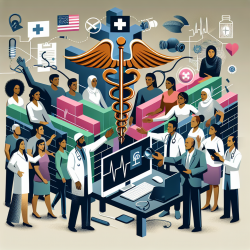The prevalence of both acute and chronic pain in children is a significant concern within the healthcare sector. Despite its impact on recovery and quality of life, paediatric pain is often inadequately assessed and managed. The research article "Paediatric Pain Education for Health Care Professionals" highlights the critical need for improved education across disciplines to address this issue effectively.
The Impact of Pain in Children
Pain in children, whether acute or chronic, can have detrimental effects on their recovery from illnesses and injuries. Poorly managed pain leads to unnecessary suffering and can significantly impact a child's quality of life. It also poses a substantial economic burden on society. For instance, chronic pain treatment costs in adolescents are estimated at £3.8 billion annually in the UK and could reach $19.5 billion in the US.
Current Challenges in Paediatric Pain Education
Despite the availability of extensive literature on paediatric pain management, there is a notable gap between knowledge and clinical practice. Many healthcare professionals lack adequate training in pain assessment and management due to insufficient educational resources during their formative years.
- Medicine: Many medical schools lack structured pain education curricula, resulting in inconsistent training.
- Nursing: Nurses often administer pain treatments but may feel disempowered due to insufficient training.
- Physiotherapy: Physiotherapists require more comprehensive training to integrate biopsychosocial approaches into their practice.
- Psychology: Psychologists need to focus on reducing biomedical biases and enhancing interdisciplinary approaches to pain management.
The Role of Online Education
Online education presents a feasible solution to the lack of prelicensure pain education among healthcare professionals. It offers flexibility and accessibility, allowing practitioners to enhance their skills without the constraints of traditional classroom settings. The integration of novel technologies into professional training can significantly improve knowledge and attitudes towards paediatric pain management.
Benefits of Online Education
- Increased professional competence in pain management.
- Improved clinician skills, particularly in pain assessment and opioid administration.
- Enhanced adherence to clinical practice guidelines in paediatric palliative care.
Implementing Research Outcomes
The research emphasizes the importance of developing interdisciplinary training programs that incorporate medical, psychological, and physiological perspectives. By doing so, healthcare professionals can better address the multifaceted nature of paediatric pain and improve patient outcomes.
Encouraging Further Research
The ongoing development of online resources should be assessed for their effectiveness in improving professional knowledge and clinical outcomes. Future research should focus on identifying which elements of online education are most beneficial for healthcare professionals working with paediatric patients.
Conclusion
The need for comprehensive paediatric pain education across all healthcare disciplines is evident. Online education offers a promising avenue for addressing current gaps in knowledge and practice. By leveraging technology and interdisciplinary collaboration, healthcare professionals can significantly enhance their ability to manage paediatric pain effectively.
To read the original research paper, please follow this link: Paediatric Pain Education for Health Care Professionals.










